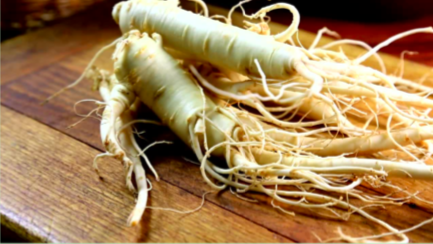Do you ever wish you could run marathons but struggle to even make it through a 1km run? If just the thought of it makes your legs jelly, tune in because by the end of this article you’ll have a new game plan of how to increase your endurance and strength!
What contributes to endurance?
Endurance is the body’s ability to perform work (in this case physical activity) over an extended period of time. There are many lifestyle and dietary factors that contribute to a body’s endurance level and by fine tuning these factors a person’s endurance level can be enhanced.
Lifestyle factors such as physical activity, specific training type, sleep and stress levels play a huge role in the body’s ability to sustain and produce energy. The adult body requires 8 hours sleep a night for optimal rest, recovery and functioning. Dietary factors such as giving the body adequate amounts of water, the macronutrients protein, carbohydrates and fats and nutrients from fruit and vegetables are what the body requires to fuel itself through day to day activities yet alone exercise. Consuming processed foods that are high in glycemic index, simple sugars, trans fats and artificial colours and flavours can hinder the body’s ability to produce and sustain the energy it needs for endurance.
What is the best exercise to build endurance?
According to the American Council on Exercise the best exercises for strength endurance training are compound and single-joint movements that use a variety of equipment or are bodyweight exercises. For maximum effect these should be executed at a low to moderate intensity 40-80% of 1RM with anywhere from 2-5 sets of at least 10 repetitions. Some benefits from this type of exercise include good postural stabilisation, improved aerobic capacity of working muscles and enhanced performance of functional tasks.
What foods should I be fuelling my body with?
There are some great superfoods to help optimise your body’s energy and endurance performance, some of these include:
Rolled oats are a complex carbohydrate meaning they are a slow releasing source of energy, they also contain high amounts of soluble fibre, have a low GI and are rich in minerals and antioxidants.
Ginseng is a great addition to enhancing exercise endurance and performance. Studies have shown that daily ginseng supplementation enhances ATP (the body’s energy) production levels in cells, suggesting improvement in exercise endurance and performance while supporting skeletal muscle function (Shin et al., 2020).
Bananas are full of potassium, fibre and vitamin B6 which helps the body to maintain low blood sugar, regulate digestion and replenish the body with electrolytes lost after physical exertion. A study conducted on the effectiveness of bananas during endurance exercise compared to sports drinks found that bananas showed the same performance benefits as sports drinks but had several other health advantages (Appalachian State University, 2012).
Chia seeds contain high amounts of fibre, antioxidants, omega-3 and hydrophilic properties to prolong hydration (able absorb more than 12 x their weight in water). Studies found that when eating chia seeds for endurance events lasting more than 90 minutes, athletes could reduce their sugar intake and still have the same performance results as an athlete consuming traditional carbohydrate loading treatments (Illian et al., 2011).
Salmon is a rich source of protein, omega-3 fatty acids and vitamins B12 and B6. Research shows that supplementation of omega-3 could improve neuromuscular engagement, nerve conduction and reduce inflammation from exercise. Due to their vasodilation properties, during exercise the movement of oxygen into skeletal muscle is increased leading to improvement in endurance exercise capacity (Evon, 2018).
Sweet potatoes are a great fuel for athletes due to their high vitamin and mineral content that are crucial for healthy muscle function. As they are a complex carbohydrate, they are slow releasing, keeping the body fuelled during endurance exercises.
Run with this…
By combining adequate sleep, consistent exercise, water intake and a nutrient rich diet, you can create a recipe for success and equip your body for all things endurance! Remember, one of these facets is no better than the rest and the body requires ALL of these factors to thrive and be able to exert itself in an endurance capacity.
References
Appalachian State University. (2012, May 29). Bananas are as beneficial as sports drinks, study suggests. ScienceDaily. Retrieved July 25, 2022 from www.sciencedaily.com/releases/2012/05/120529113258.htm
Evon, J. (2018). Omega-3 Fatty Acid Supplementation: Helpful for Exercise? University of Western States. Accessed on 28/07/2022, <https://www.uws.edu/2018/04/10/omega-3-fatty-acid-supplementation-helpful-for-exercise/>
Illian, T., Casey, J., Bishop, P. (2011). Omega 3 Chia Seed Loading as a Means of Carbohydrate Loading, Journal of Strength and Conditioning Research: January 2011 – Volume 25 – Issue 1 – p 61-65 doi: 10.1519/JSC.0b013e3181fef85c
Shin, E. J., Jo, S., Choi, S., Cho, C. W., Lim, W. C., Hong, H. D., Lim, T. G., Jang, Y. J., Jang, M., Byun, S., & Rhee, Y. (2020). Red Ginseng Improves Exercise Endurance by Promoting Mitochondrial Biogenesis and Myoblast Differentiation. Molecules (Basel, Switzerland), 25(4), 865. https://doi.org/10.3390/molecules25040865




